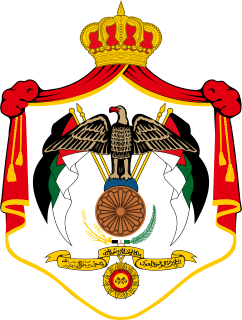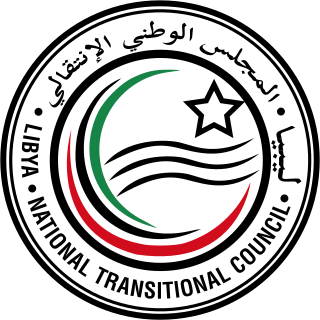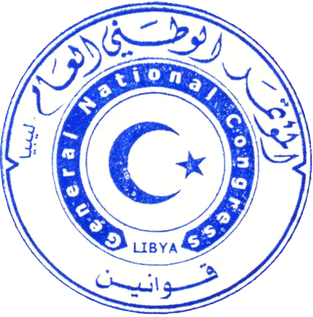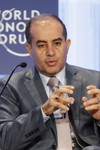
The Politics of Libya is in an uncertain state due to the collapse of the Libyan Arab Jamahiriya in 2011 and an ongoing civil war between the Council of Deputies in Tobruk and its supporters, the New General National Congress in Tripoli and its supporters, and various jihadists and tribal elements controlling parts of the country.
Elections in Greece gives information on elections and election results in Greece.

Elections in Bhutan are conducted at national (Parliamentary) and local levels. Suffrage is universal for citizens 18 and over, and under applicable election laws. In national elections, political party participation is mainly restricted to the lower house of Parliament, and by extension, to the executive nominated by its majority.

Elections in Jordan are for the lower house, known as the House of Representatives, of the bicameral parliament of Jordan, as well as for local elections. They take place within a political system where the King has extensive legislative and executive powers, retaining ultimate political control. The Prime Minister is selected by the King, the PM is then free to choose his own Cabinet. The parliament has quotas: three seats for Circassians and Chechens, nine for Christians and fifteen for women. The electoral system favours rural tribes and those of East Bank origin over urban areas that are primarily inhabited by those of Palestinian descent.

There are six types of elections in the United Kingdom: elections to the House of Commons of the United Kingdom, elections to devolved parliaments and assemblies, elections to the European Parliament, local elections, mayoral elections and Police and Crime Commissioner elections. Within each of those categories, there may be by-elections as well as general elections. Elections are held on Election Day, which is conventionally a Thursday. Since the passing of the Fixed-term Parliaments Act 2011 for general elections, all six types of elections are held after fixed periods, though early elections to parliament and the devolved assemblies and parliaments can occur in certain situations. Currently, six electoral systems are used: the single member plurality system, the multi member plurality system, party-list proportional representation, the single transferable vote, the additional member system and the supplementary vote.

The National Transitional Council of Libya, sometimes known as the Transitional National Council, was the de facto government of Libya for a period during and after the Libyan Civil War, in which rebel forces overthrew the Libyan Arab Jamahiriya of Muammar Gaddafi. The NTC governed Libya for a period of ten months after the end of the war, holding elections to a General National Congress on 7 July 2012, and handing power to the newly elected assembly on 8 August.

Mahmoud Jibril el-Warfally, also transcribed Jabril or Jebril or Gebril, is a Libyan politician who served as the interim Prime Minister of Libya for seven and a half months during the Libyan Civil War, chairing the executive board of the National Transitional Council from 5 March to 23 October 2011. He also served as the Head of International Affairs. As of July 2012, Jibril is the head of one of the largest political parties in Libya, National Forces Alliance.

Ali Abdussalam Tarhouni is a Libyan economist and politician. Tarhouni served as the minister for oil and finance on the National Transitional Council, the provisional governing authority in Libya, from 23 March to 22 November 2011. He acted in the capacity of interim prime minister of Libya during the departure of outgoing incumbent Mahmoud Jibril from 23 October 2011 until Abdurrahim El-Keib was formally named to succeed Jibril on 31 October.

Parliamentary elections were held in Libya on 25 June 2014 for the House of Representatives. Whilst all candidates ran as independents, the elections saw nationalist and liberal factions win the majority of seats, with Islamist groups being reduced to only around 30 seats. Election turnout was very low at 18%.

The aftermath of the Libyan Civil War has been characterized by marked change in the social and political order of Libya after the overthrow and killing of Muammar Gaddafi in the 2011 Libyan Civil War. The country has been subject to ongoing proliferation of weapons, Islamic insurgencies, sectarian violence, and lawlessness, with spillovers affecting neighboring countries including Mali.

Mohammed Yousef el-Magariaf, or, as he writes on his official website, Dr. Mohamed Yusuf Al Magariaf is a Libyan politician who served as the President of the General National Congress from its first meeting in August 2012 until his resignation in May 2013. In this role he was effectively Libya's de facto head of state, until his resignation in May 2013.

Mustafa A.G. Abushagur is a Libyan politician, professor of electrical engineering, university president and entrepreneur. He served as interim Deputy Prime Minister of Libya from 22 November 2011 to 14 November 2012 in Abdurrahim El-Keib’s cabinet and was briefly elected to succeed El-Keib as Prime Minister in 2012, before failing to receive congressional approval for his cabinet nominees and being removed from office.
Abdulrahman Ben Yezza is a Libyan businessman and politician who is the Oil Minister in the government of Abdurrahim El-Keib. Prior to the 2011 Libyan Civil War, Ben Yezza served as "chairman of the operator's management committee" for Italian oil company Eni. He also worked for Libya's National Oil Corporation during Libya's governance by Muammar Gaddafi, but he quit the company voluntarily due to reported differences with its then-leader Shokri Ghanem, a member of Gaddafi's inner circle. In 2014 the Libyan government has named Abdulrahman Ben Yezza as chairman of the Libyan Investment Authority (LIA). He temporarily replaced AmbdulMagid Breish who had to step out pending investigation into his role in the Gaddafi administration.

The National Forces Alliance is a political alliance in Libya. The alliance was created in February 2012. It includes 58 political organisations, 236 NGOs, and more than 280 independents. The alliance is of predominantly liberal tendency. It calls for "moderate Islam" and a "democratic, civil state".

The new NFP leader is Abdalla G Elrifadi

Early general elections were held in Jordan on 23 January 2013. Voter turnout was reported to be 56.6%.

Constitutional Assembly elections took place in Libya on 20 February 2014. Nominations for elections to the constituent assembly started on 6 October 2013; registration for candidates to the assembly was over as of 11 November 2013. The assembly will be composed of 20 members each from Libya's three regions: Tripolitania, Cyrenaica and Fezzan. The work of the committee is expected to last from March 2014 until July 2014. The constitutional declaration submitted in August 2011 by the formerly ruling National Transitional Council indicated that Congress itself would appoint the commission; however the General National Congress (GNC) voted instead to hold an election for the selection of individuals to the constitutional commission. The constitutional commission will draw up the constitution, which will then be up for vote in a referendum. As of early January 2014, 1,001,910 voters had registered via SMS.

The 2014 European Parliament election for the election of the delegation from the Netherlands was held on 22 May 2014. This is the 8th time the elections have been held for the European elections in the Netherlands.
Apportionment in the Hellenic Parliament refers to those provisions of the Greek electoral law relating to the distribution of Greece's 300 parliamentary seats to the parliamentary constituencies, as well as to the method of seat allocation in Greek legislative elections for the various political parties. The electoral law was codified for the first time through a 2012 Presidential Decree. Articles 1, 2, and 3 deal with how the parliamentary seats are allocated to the various constituencies, while articles 99 and 100 legislate the method of parliamentary apportionment for political parties in an election. In both cases, Greece uses the largest remainder method.





















